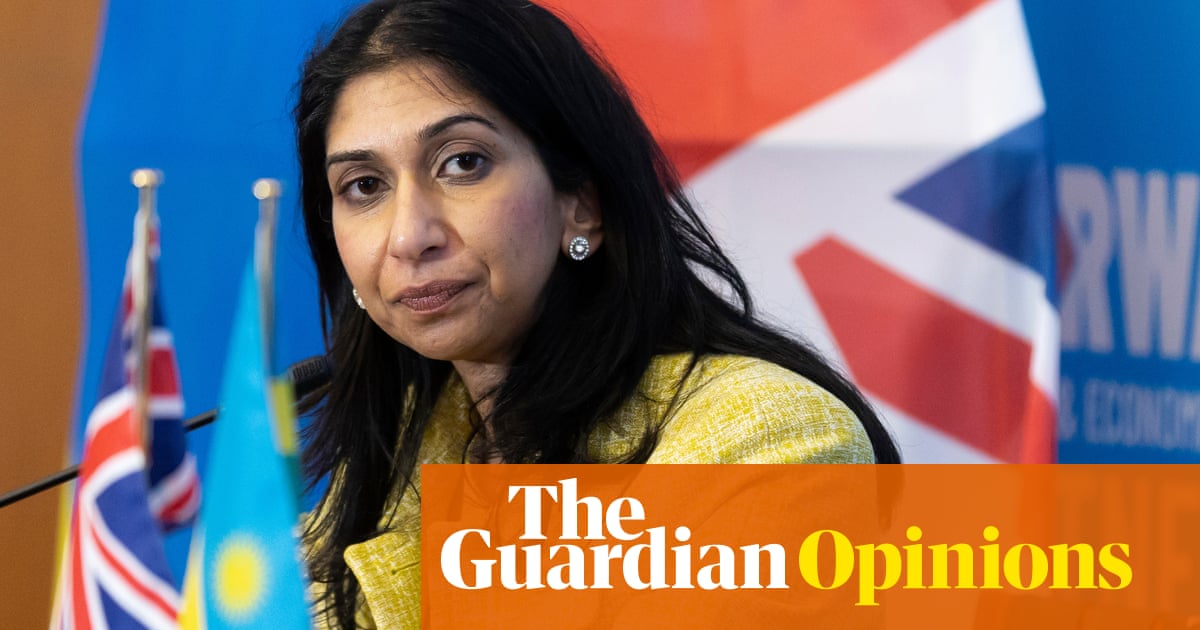
oe Biden is a fine one to lecture Boris Johnson on trade with his neighbours. Johnson could well retort: what about the US and Mexico? What about the $88bn Biden spends trying and failing to police his shambolic drugs trade with Latin America, and its related market in anarchy, refugees, gangsterism and death, not to mention the resulting US crime wave?
Last week the FBI boasted that it had infiltrated the dark web and busted 300 trafficking and laundering rings, sparking 800 arrests. This was a total waste of money, a classic case of attacking symptoms not causes. All it will do is cram hundreds more desperate people into prison and briefly increase the retail price of heroin, cocaine, fentanyl and the rest. The impact on consumption will be zero.
The west’s 50-year-old “war on drugs” has not just failed. It has been a disaster, and nowhere more so than in the Americas. In the past 15 years, 200,000 Mexicans are estimated to have died or disappeared trying to meet the US’s voracious appetite for narcotics. The crime rate in the US, after declining for two decades, has begun rising steeply, and the drugs trade is the principal cause. Average life expectancy in the US has fallen for the first time since the height of the Aids epidemic. From 1999-2019, nearly 500,000 people died in the US from overdosing on opioids. Fentanyl is so corrupted that a quarter of pills are now suspected of being lethal.
Since the drugs trade is global, the war to stop it has gone international, enabling each nation’s politicians to blame foreigners. In the US’s case, the political economies of much of Central and South America have been destabilised for decades. Parts of Mexico and Colombia are riven by continuous warfare from supplying the American drugs market.
Over the past 10 years something has shifted. The US tradition of states’ rights has permitted some experiment and reform. Cannabis is being steadily legalised, including crucially its supply. California regulates it like alcohol. In Colorado, cannabis taxes help to finance the schools. New York and Washington are moving in the same direction. Reform stopped much of the flow of marijuana over the Mexican border and went some way to curbing the cartels. But the market soon switched to the anarchic trade in heroin, cocaine and fentanyl.
The truly tragic victims of this trade are the families cramming the camps of the US’s Mexican border, but few commentators ever address the cause. The reality is that a booming demand for any product will generate a booming supply. The US’s attempts to stop alcohol abuse with prohibition were futile. But when, like Britain, the US tried to stop nicotine addiction with “nudge” policies, it worked. The legalisation of cannabis in parts of the US and Europe has not sent consumption soaring. But the continued bans on cocaine and heroin use have done just that. Oregon is the one state recently to legalise “hard” drugs and its experience will be watched with care. But if ever a social reform screamed for an open mind, this must be it.
If Johnson were indeed to raise the drugs trade with Biden, the president might reply that at least he is trying. Britain is not. Scotland has now overtaken the US in its appalling drug fatality rate, which has doubled in five years. Britain still imprisons thousands of people each year for drug-related offences, leading to an incarceration rate almost twice that of most of the rest of Europe. Britain’s online drugs sales are among the most profitable in Europe and the number of people in England who buy drugs online has more than doubled since 2014. Cocaine imports have tripled to 117 tonnes a year over a decade. London’s recorded cannabis offences top 25,000 annually, as if the police had nothing better to do. British policy is as counterproductive as it is primitive, stuck with the 1971 Misuse of Drugs Act.
A country that has successfully tackled tobacco seems terrified of doing likewise with drugs. The recent review of drugs and crime by Prof Carol Black estimated that 3 million Britons now take illegal drugs, 10% of them hard ones. The market is worth £9.4bn a year. Gang membership includes 27,000 children and the numbers in county lines are soaring.
So why is reform so taboo? Is it because ministers have dirty secrets? The Home Office under Priti Patel has told Scotland not even to think of it. Meanwhile, Downing Street has condemned London mayor Sadiq Khan’s “evidence-based conversation” on drug use, calling it a “waste of time”. Khan should go ahead anyway.
Cannabis legalisation is slowly arriving everywhere, even if Britain is last in this ridiculous queue. But it is the trade in hard drugs that most urgently needs reform. Unregulated they kill. They feed national and international crime and curse the people of the world’s poorest countries. Reform would be by far the most constructive subject for the G7 to discuss. Yet as they signal their virtue over Cornwall this weekend, I bet it never gets a mention. It matters too much.












